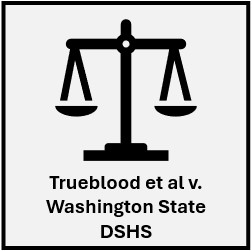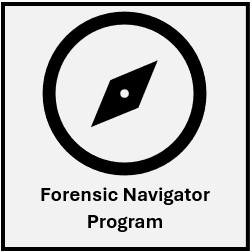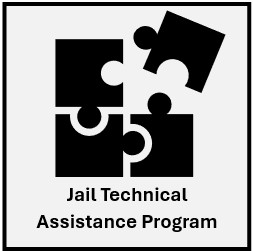The Office of Forensic Mental Health Services is a division of the Department of Social and Health Services’ Behavioral Health Administration. We oversee the state’s adult forensic mental health system.
Forensic services occur where the law and psychology meet. For defendants, services include competency evaluations, care and treatment to restore competency, forensic navigator services, jail technical assistance, workforce development, and more.
We strive to transform forensic mental health throughout Washington state by partnering with communities and law enforcement in areas such as mental health resources in jails, competency restoration, diversion programs, and community resources. We work to better support people living with mental illnesses who come into contact with the criminal court system.
Trueblood v. DSHS
The Department of Social and Health Services has achieved a milestone in efforts to transform Washington's behavioral health system as we continue working toward successfully addressing the demand for competency services.
We focus our efforts on two specific areas:
- Completing in-jail competency evaluations within 14 days of signature or receipt of a court order.
- During 2024, the Department has been completing evaluations on average 83.3% of the time within 14 days across the state.
- On the east side of the state, there have been several months where 100% compliance was reached.
- Providing inpatient competency restoration services within seven days of signature or receipt of court orders.
- DSHS consistently offers Trueblood class members a bed in one of the state’s inpatient facilities within the mandated seven-day time limit.
Our five-prong effort
We developed five approaches to ensure people in jail receive needed services so they are able to stand trial and reduce their risk of re-offending.
Forensic evaluators
Forensic evaluators inform the court of a defendant’s mental state and ability to understand the criminal charges and participate with their lawyer in their defense.
Forensic evaluators employed by the Department of Social and Health Services Office of Forensic Mental Health Services are doctoral-level psychologists who have specialized training and expertise that allows them to apply psychological principles to the courtroom.
These staff assist in the delivery of services that help ensure that the rights afforded to people by our Constitution are maintained and the safety of the public is recognized.
Forensic navigators
As a result of the Trueblood Settlement of Contempt Agreement, a new position of Forensic navigators was created. Forensic navigators have been working with clients since July 2020.
Forensic navigators have two main functions:
- Help move forensically involved clients from jails and inpatient treatment settings to outpatient competency restoration.
- Provide a variety of services to people ordered into outpatient competency restoration. They refer clients to programs like Forensic HARPS and Forensic Projects for Assistance in Transition from Homelessness, and other community and local diversion and assistance programs.
Diversion navigators
One of the best ways to keep people with behavioral health challenges out of the criminal court system is to get them the help and resources they need before they commit a crime.
Diversion navigators identify people in jail who may be eligible to receive specialized wrap-around services. These positions were created to help break the cycle of people in jail committing additional criminal offenses after they are released.
This program was created with the passage of Substitute Senate Bill 5440 in 2023.
SCORE jail pilot program
The SCORE Clinical Intervention Specialist Pilot Program was created after the passage of SSB 5440 in 2023. It uses the services of DSHS clinical intervention specialists and clinicians working with SCORE’s contracted medical and behavioral health staff to assess and offer additional treatment options.
These services are offered to Trueblood class members charged with a crime, awaiting competency services, and who are currently in jail. These defendants receive targeted supportive services while incarcerated through support of Master's level clinicians and a clinical intervention specialist, who is a licensed to prescribe medications. These services are provided during incarceration, but there is an emphasis on release planning for continued continuity of care post release.
Those options include motivational interviewing to help people comply with taking their medications, group and individualized therapy, and specialized programming to help them stabilize their mental health.
Jail technical assistance
The Jail Technical Assistance program provides information and assistance to jails and others working within the criminal court system through varied outreach efforts including a monthly webinar series. We also provide guidance to Washington jails regarding best practices for behavioral health services in jail settings through the program’s guidebook. This publication provides information and resources to jail staff in areas such as transition planning, suicide prevention, and crisis de-escalation.
Workforce development
We provide a forensic workforce development program which supports efforts to recruit and retain mental health professionals who provide an array of services in communities throughout Washington. Our team promotes careers in forensic mental health and supports the existing workforce through training and assessment of workforce needs.
Follow us for the latest news on our Medium page: https://dshswa.medium.com/






